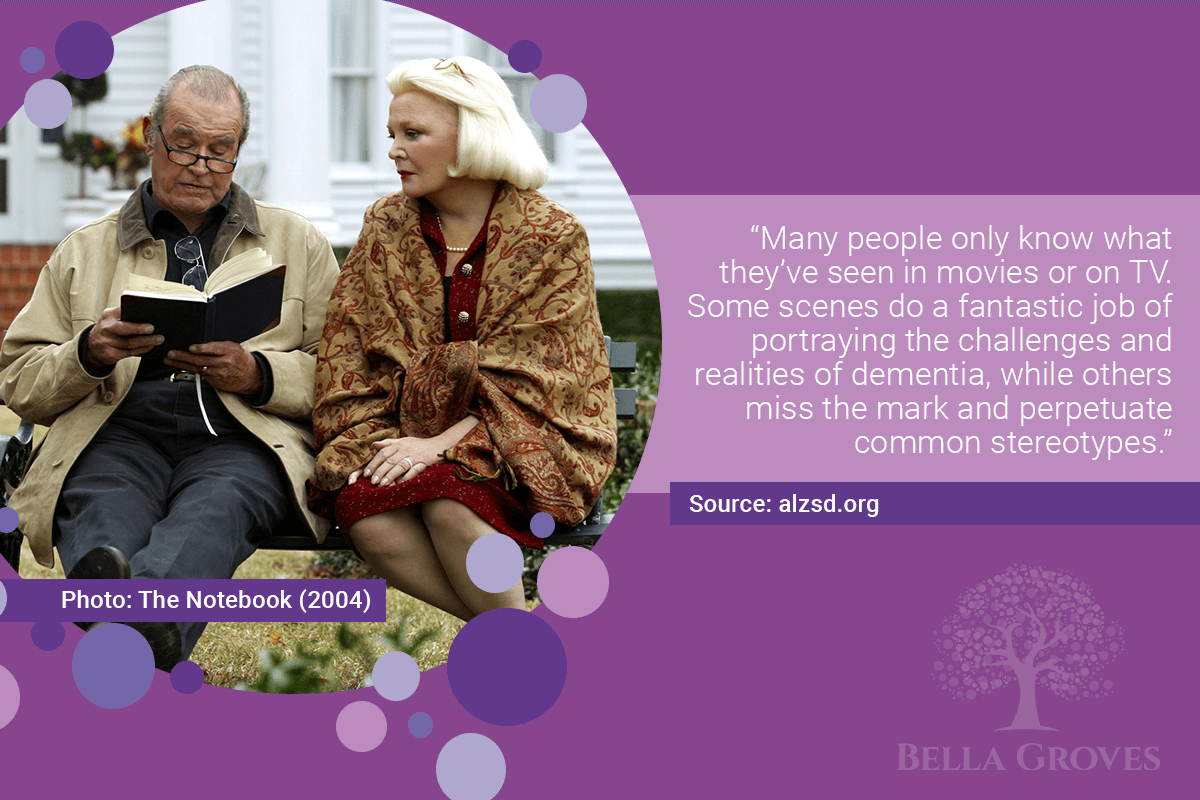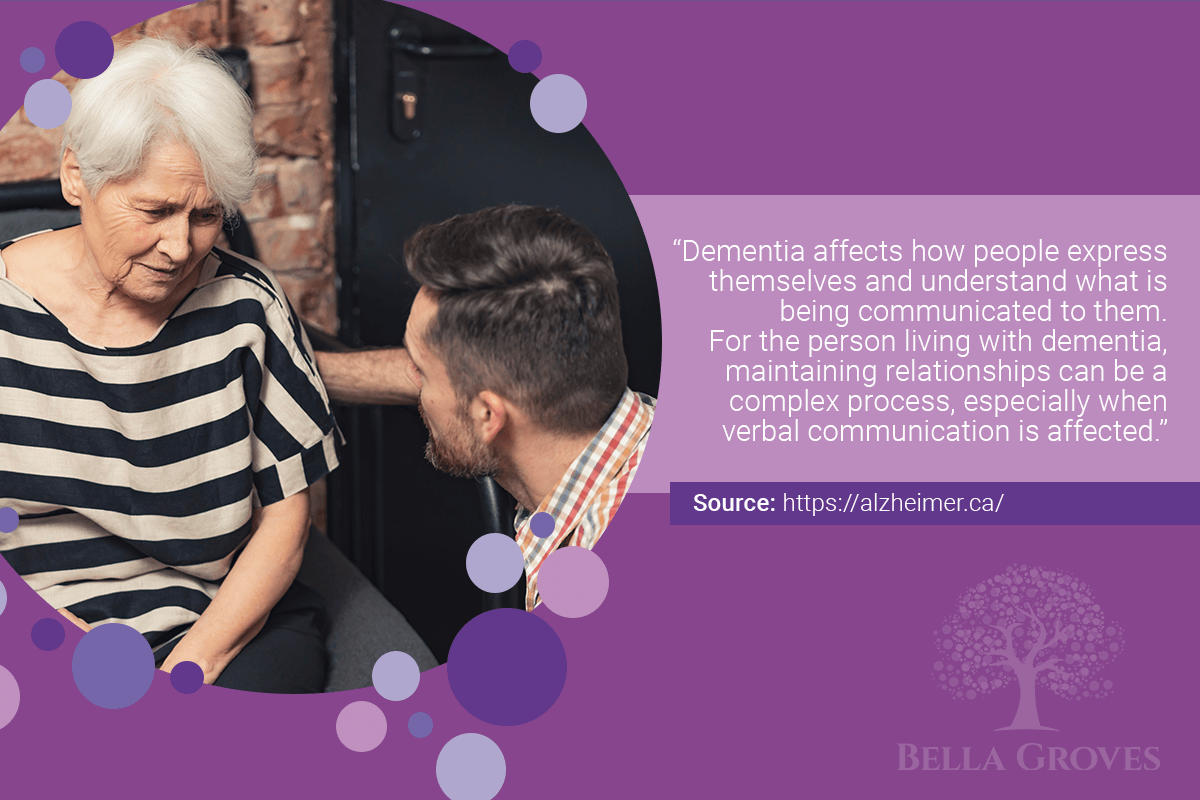
Holiday Meals: Tips for Meal Preparation for a Person Living with Dementia
There’s nothing better than spending time with the people who matter the most to you while ringing in the season with a delicious meal. However, for a person living with dementia, cognitive and sensory changes can impact how they respond to food and pose challenges to their appetite. They might even find themselves not liking the holiday foods that used to be their favorite.
When it comes to meal preparation for the holidays, it can be challenging to gauge how your relative might deal with mealtimes. Bella Groves is dedicated to sharing dementia care tips and resources to ensure your family’s holiday meal preparation and gatherings are positive experiences.
Promote Inclusivity
One of the best parts of celebrating the holidays with a family meal is the cooking and preparation. Tradition is one of the core representations of family and gives us a sense of history, purpose, and longevity. For old adults, watching younger generations continue on beloved foundations is a beautiful aspect of the holidays.
While dementia can impact a person’s cognitive abilities, the desire to help and be included in these holiday traditions remains.
Adjusting activities to fit a relative’s cognitive abilities can help your family member feel included in the process of preparing for the holidays, and you can continue to enjoy the connection that meal preparation brings during this special season.
- Choose a time when your relative is calm and rested.
- Create a comfortable environment by playing their favorite holiday songs, and find their favorite cookbook or leaf through family recipes.
- Minimize extra noises that could cause distraction or disorientation; turn off the television and turn cell phones onto silent mode.
Preparing food can help a person living with dementia practice hand-eye coordination, and the result can create a sense of accomplishment. The kitchen is truly the heart of every home, especially during the holidays!
Prioritize Safety
When someone is living with dementia, it can change the way they perceive danger and repercussions when cooking. Over time, dementia can progressively alter the five senses: touch, smell, sight, taste, and hearing. When working in the kitchen, these senses are crucial for safety, so it’s important to take this into consideration when involving a loved one in meal preparation.
For example, as the sense of touch begins to diminish, so does sensation, which means it can be difficult for a person with dementia to interpret heat or pain.
- Be aware of if/when your loved one is near the stove/oven when it is on.
- If taste-testing your recipes, be mindful of the food temperature.
- Be careful when using boiling water, whether cooking food or making a special holiday mug of apple cider or hot chocolate.
Tips for Mealtimes & Presentation
Dementia causes progressive changes to the brain that can alter a person’s eating and appetite habits. The aforementioned change in senses might affect how they smell, taste, or crave different foods. For example, perhaps your relative has always enjoyed eating turkey during the holidays; it’s been their favorite part of the meal for as long as you can remember. However, now turkey might smell or taste different, and they might no longer like eating it anymore and refuse to put any on their plate. If this occurs, let your family member take the lead on what they want to eat, even if it seems like a strange food option.
Since people living with dementia have issues feeling the sensations of pain, appetite is a good indicator of any discomfort. When any person is sick, in pain, or uncomfortable, appetite loss is common. If your loved one is exhibiting a lack of appetite, ask specific questions to uncover any underlying reasons why they don’t want to eat. Instead of asking, “What’s wrong?” or “Why won’t you eat? ask, “Does your stomach hurt?” or “Is the food not cooked to your liking?”
Another common challenge that many living with dementia face is self-prompting a task. This can be seen at mealtimes; the person living with dementia is hungry and wants to eat, but they just can’t start the task. One way you can help is to sit across from them and eat. This helps because we have mirror neurons that help us to mirror the actions and behaviors of those around us. So someone may not be able to self-prompt the task of eating, but they may be able to mirror the actions of the person sitting across from them that is eating.
Beyond the act of eating, make sure the environment is comfortable by eliminating any loud and distracting noises and engaging your loved one during the meal. “You want the person to be engaged, but not too much or too little,” Dr. Suzanne Schindler, a neurologist and a professor at Washington University School of Medicine in St. Louis, says. “Too little might be seating the person at the back of a room. Too much might be seating the person in the middle of a noisy crowd or in the path of active children.”
Additional tips include:
- Consider holding holiday meals at brunch or lunch since some people with dementia experience fatigue or confusion later in the day.
- Interact directly with the person living with dementia, rather than just focusing on talking to those around them.
- Provide a quiet place where the person can spend some downtime if needed.
At Bella Groves, we are dedicated to helping families feel confident in their abilities to think through the different scenarios they may experience when caring for a person living with dementia. Our dementia care community in San Antonio offers residential support to those with dementia, while our information and coaching options provide resources, strategies, and encouragement to help all care partners. To discover more about what we do and why, we encourage you to visit our website.


